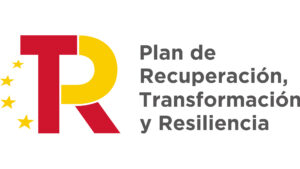“SmarTZ4Milk - Cadea de Valor Láctea Intelixente, Rastrexable, Sostible e Conectada” is a tractor project promoted by the Galicia Food Cluster (Clusaga) through the Next Generation Galicia Food Technical Office that has Grupo Leche Río as a leading company, and whose main objective is to transform the Galician dairy sector and revolutionize its competitiveness through R&D&i and investment in sustainability. This project is financed through the industrial strengthening actions of the agri-food sector - PERTE AGROALIMENTARIO
This project has the participation of a total of 11 participating companies, all members of Clusaga, of which 7 are dairy companies: Grupo Leche Rio, CAPSA FOOD, Grupo Cooperativas Lácteas Unidas - CLUN, Grouping of Dairy Cooperatives, Cooperativa Agraria Provincial De A Coruña, Queizuar and Queixería Prestes. Four other companies participate as technology providers: AMSlab Group, ASM Soft, Plexus Technologies and Sixtema Information Projects.
Thus, it is worth highlighting the involvement of the University of Santiago de Compostela (USC), the University of Vigo (UVigo), and the Technological Center of Galicia (ITG), also members of Clusaga. SmarTZ4Milk also has Medrar Smart Solutions as technical coordinator of the proposal, and 22 other subcontracted technology companies.
The project has a budget of €16.8 M, with the aid granted being €9.7 M and with financing from the Ministry of Industry, Commerce and Tourism (MINCOTUR) and the European Union, through the funds Next Generation EU.
The SmarTZ4Milk project, which will be executed until June 2025, has 5 specific objectives that are in line with PERTE, seeking to address and advance the three main blocks of competitiveness, sustainability and traceability of the agri-food sector:
- Encourage research, development and industrial innovation in the dairy sector and the entire associated value chain, contributing to maintaining Spain at the forefront of the agri-food sector, relying on key knowledge entities at the state level through 18 projects primary, of which 15 are collaborative in nature.
- Increase the competitiveness of the sector, through digitalization, automation and sensorization of processes, as well as innovation in logistics, through artificial intelligence or Big Data tools, through the 7 primary competitiveness.
- Promote processes at an environmental level, carrying out strategies that enhance the sustainability of the sector, reducing the raw materials consumed, emissions and waste generation, as well as a significant reduction in the environmental impacts of companies through the 7 projects in this line.
- Promote green investments in the dairy industry, contributing to the achievement of environmental and climate objectives established at state and European level, through actions in the field of energy efficiency and renewable energies, water recovery and treatment, as well as of circular economy and the reduction of pollution through the 2 investment projects.
- Increase transparency and accessibility to data through the development of 2 primary projects addressing the issue of traceability.














